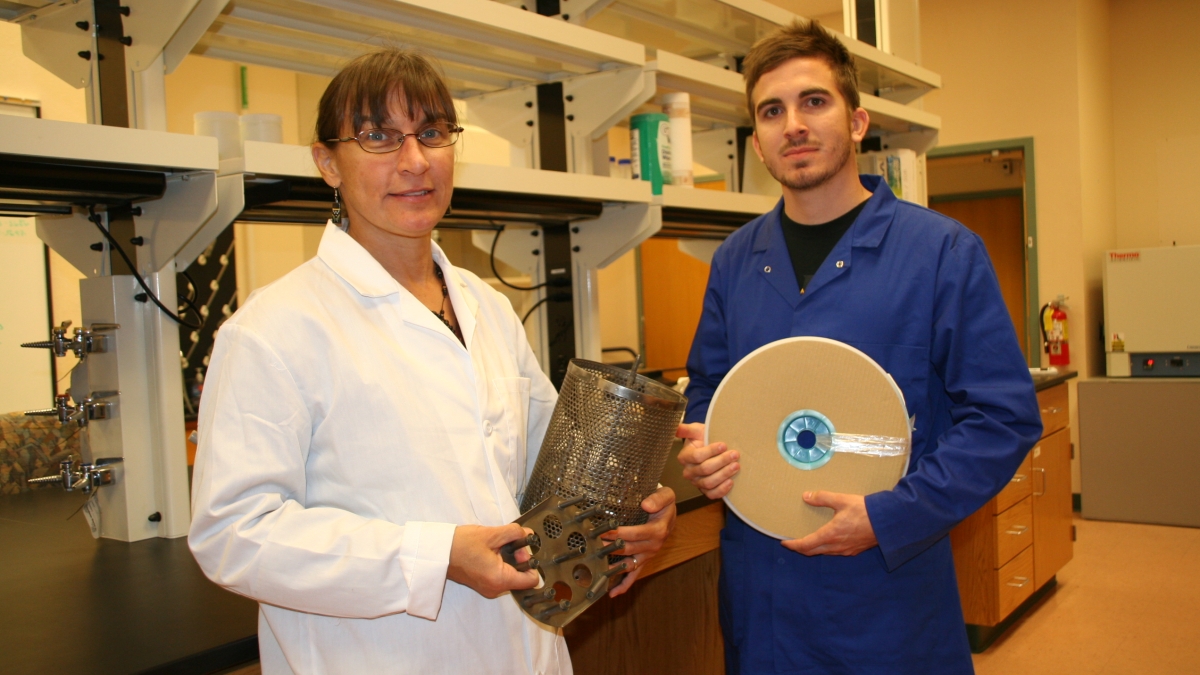Student studies contaminants in urban waterways

An opportunity to expand his knowledge of field and laboratory techniques while helping to learn more about pollution in urban bodies of water was too good for Kyle Trebitowski to pass up.
He is one of several undergraduate students working on research with Beth Polidoro, assistant professor of environmental chemistry in ASU’s New College of Interdisciplinary Arts and Sciences. New College is the core college on ASU’s West campus.
Trebitowski, a senior majoring in life sciences with a concentration in forensic science, was selected via a competitive process to receive a stipend through the New College Undergraduate Inquiry & Research Experiences (NCUIRE) program, which pays undergrads to work with faculty members on research projects across the curriculum. He also is earning academic credit for his contributions to the project.
“It’s a tremendously valuable experience for students to work side-by-side with research faculty, getting an in-depth, hands-on learning experience,” said Polidoro, whose current research includes a variety of water quality and biodiversity assessment projects in the United States, Latin America and West Africa. “In this case, Kyle is getting experience both with collecting samples in the field and with analyzing them back in the lab.”
“I’ve had the chance to be involved with actually setting up a lab, deciding what equipment needs to be ordered and learning the proper protocols for lab work,” Trebitowski said.
His fieldwork involves sample collection at urban lakes, ponds and canals where urban fishing takes place in Phoenix and surrounding cities, including Tempe, Glendale, Chandler and Peoria. The research is looking for contaminants in water, fish and sediments.
Besides gathering water samples, Trebitowski makes use of “artificial fish,” devices filled with fat designed to mimic fish fat, which are placed in bodies of water to determine what contaminants they absorb. This approach is used to estimate the bioavailability of contaminants to fish and people, and works to standardize the contaminant content for different sized fish and other organisms.
In the lab on the West campus, Trebitowski has expanded his knowledge of sample organic contaminant extraction and analysis techniques, including the use of gas chromatography and mass spectrometry. His work also will involve synthesizing and summarizing results both for the scientific community and the public.
Trebitowski has an interest in the new and growing field of environmental forensics, in which investigators may use environmental samples in determining the location where a crime took place, look for clues in wildlife poaching cases or examine evidence in crimes against the environment, such as illegal dumping.
“My work with Dr. Polidoro will give me an advantage in the employment market,” he said. “In the competitive forensics field, you may not find a job opening that is focused specifically on what you’re most interested in. It helps to have a broad range of experiences, and I’m gaining that here.”